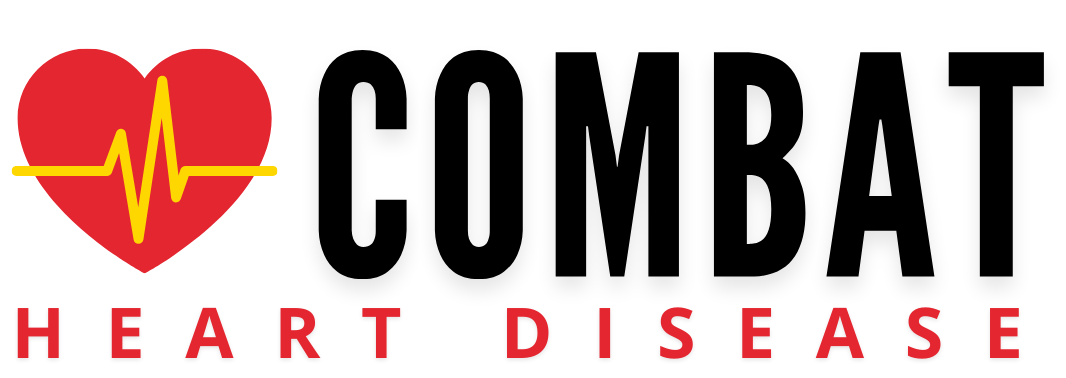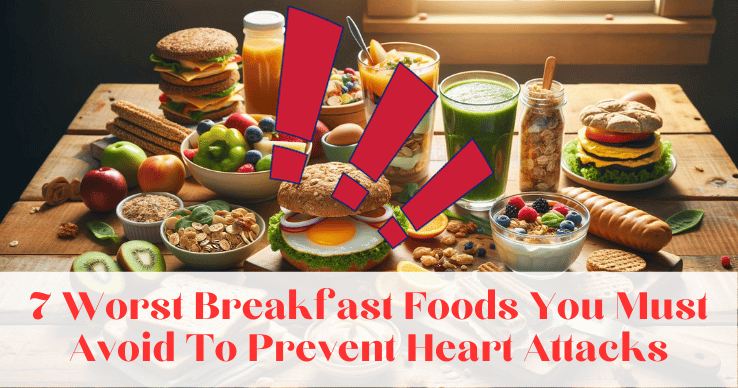As someone deeply involved in diabetes management, I understand the intricate link between diet and heart health. Today, I want to shed light on the crucial but often overlooked aspect of our diet: breakfast. It’s not just about eating something; it’s about choosing the right foods to protect your heart. Let’s dive into the seven worst breakfast foods that could be putting your heart at risk.
Understanding Heart Health and Breakfast
The first meal of the day sets the metabolic tone for your body. A heart-healthy breakfast can help regulate blood sugar, manage cholesterol levels, and support a healthy weight. However, some popular breakfast choices, often labeled as “healthy,” can be deceptive and detrimental to your heart health.
7. Light or Diet Breakfast Sandwiches

The Sodium Trap in “Healthy” Labels
Let’s delve into Light or Diet Breakfast Sandwiches, often a go-to for those hectic mornings. You might think you’re making a wise choice, but let’s unpack the reality. A revealing study by the American Heart Association found a striking connection: foods high in sodium, typical of these sandwiches, can increase your heart disease risk by up to 17%.
Beyond sodium, these sandwiches frequently contain processed meats, notorious for unhealthy saturated fats and additional sodium. Elevated levels of saturated fats are linked to an increase in LDL cholesterol – the notorious artery-clogging culprit.
Understanding the Sodium and Saturated Fat Double Threat
Consider the sodium content in these seemingly innocuous sandwiches. The CDC recommends a daily sodium intake below 2,300 milligrams, yet a single sandwich might contain over half this amount. High sodium diets are infamous for boosting blood pressure, significantly upping the risk of heart attacks and strokes.
Calorie Count vs. Nutritional Quality
It’s tempting to be swayed by the low-calorie allure of these sandwiches. However, focusing solely on calorie count overlooks the crucial aspect of nutritional quality. These ‘diet’ options might skimp on calories but are often laden with preservatives and lack essential nutrients. So, when eyeing that light or diet sandwich, remember: it’s not just about calorie reduction but making genuinely heart-friendly choices. Opting for a homemade sandwich with whole-grain bread, fresh ingredients, and controlled sodium can be a far more beneficial choice for your heart.
6. Store-Bought Fruit Parfaits
The Deceptive Nature of Pre-Made Parfaits
Moving on to Store-Bought Fruit Parfaits. They appear as a healthy breakfast nirvana, combining fruits and yogurt. However, these seemingly innocent parfaits can be laden with an unhealthy amount of added sugars. Many use flavored yogurts teeming with high-fructose corn syrup, a sugar type linked to inflammation and arterial damage, posing a direct threat to heart health.
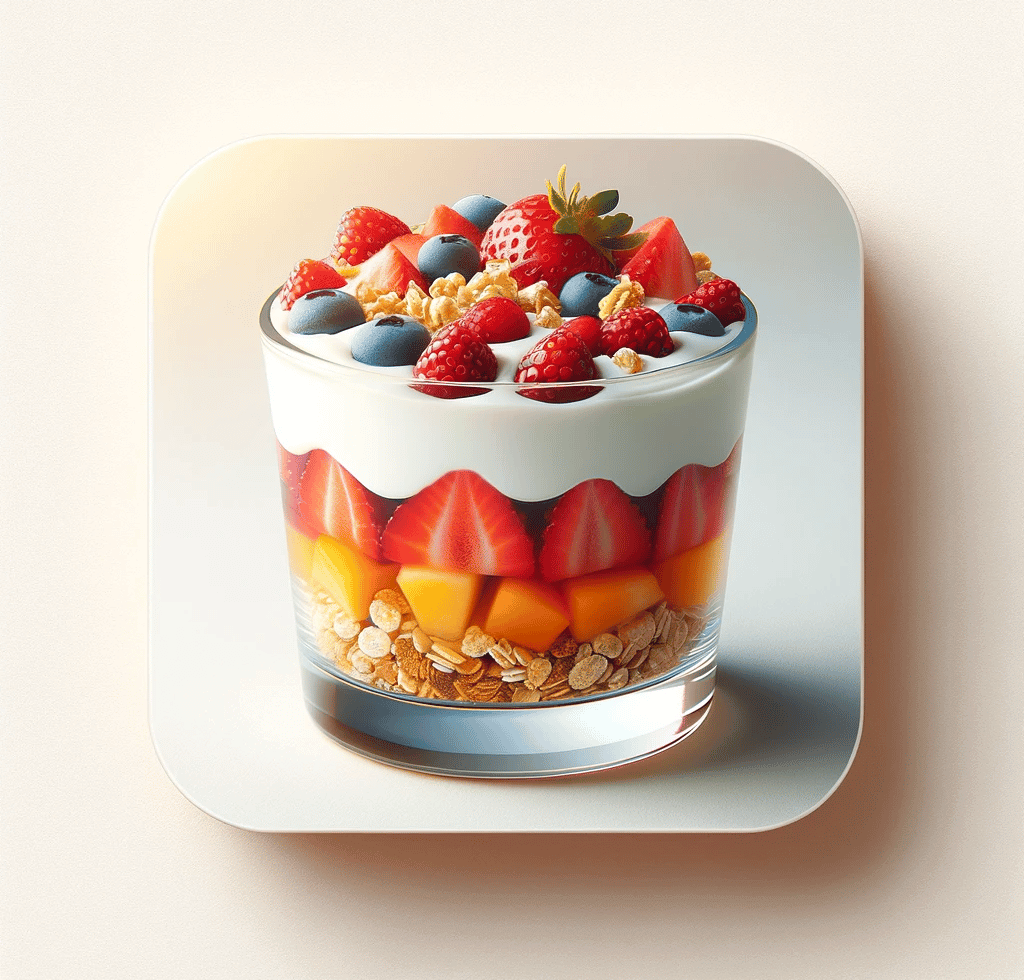
The Sugar Impact Beyond Heart Health
Excessive sugar intake impacts more than just the heart; it’s also associated with an increased risk of type 2 diabetes and obesity. Despite being marketed as health foods, the added sugars and preservatives in these parfaits paint a different picture. It’s a classic case of misleading health claims where the packaging doesn’t reflect the actual nutritional content.
Making Informed Choices for Your Heart
The next time a store-bought fruit parfait tempts you, remember that its internal content matters most. Crafting a homemade version with plain yogurt and fresh fruits, or choosing parfaits without added sugars, can significantly benefit your heart health. It’s about making smart, informed decisions that genuinely reflect a commitment to your heart’s well-being.
5. Veggie Omelets from Restaurants

Uncovering the Unhealthy Side of a Seemingly Healthy Choice
Diving into Veggie Omelets from Restaurants, a popular choice for many seeking a nutritious start. While the combination of vegetables and eggs sounds inherently healthy, the preparation method in restaurants often tells a different story.
The hidden concern here is the use of excessive unhealthy fats in cooking. A study in the Journal of the American College of Cardiology highlighted the risks associated with high consumption of saturated fats, often found in the butter or oil used to cook these omelets. These fats can increase the risk of heart disease by up to 21%.
The Impact of Cooking Methods and Portion Size
A standard restaurant veggie omelet can include up to 2 tablespoons of butter or oil, translating to about 23 grams of fat, with 14 grams being saturated. This amount is close to 70% of the recommended daily saturated fat intake as per the American Heart Association guidelines. Additionally, the portion sizes at restaurants can be deceptively large, leading to an excess calorie intake. A typical large omelet can pack between 450 to 500 calories and around 370 mg of cholesterol, surpassing the AHA’s recommended daily cholesterol limit of 300 mg.
Making Heart-Healthy Choices at Home
Considering these factors, it’s wise to think twice before ordering that veggie omelet out. A more heart-conscious approach is preparing it at home, using less oil or butter and controlling portion sizes. Incorporating a mix of egg whites and one whole egg, along with a variety of fresh vegetables, can turn this dish into a truly heart-healthy meal.
4. Reduced-Fat Peanut Butter
The Sugar Compromise in Reduced-Fat Options
Now, let’s examine Reduced-Fat Peanut Butter, often seen as the better choice for heart health. The reduction in fat often comes with a hidden trade-off: added sugar. Some brands of reduced-fat peanut butter can contain up to 4 grams of added sugar per serving.

While this might not seem significant at first glance, it can contribute substantially to the daily added sugar limit recommended by the American Heart Association — 36 grams for men and 25 grams for women.
Understanding the Heart Risk Associated with Added Sugars
The implications of added sugars extend beyond just weight gain. A study in JAMA Internal Medicine linked high sugar intake to a significantly increased risk of heart disease mortality. People consuming a high-sugar diet had a 38% greater risk of dying from heart disease compared to those with a lower sugar intake.
The Benefits of Natural Peanut Butter for Heart Health
In contrast, natural peanut butter, which contains primarily monounsaturated and polyunsaturated fats, offers considerable heart health benefits. Monounsaturated fats can lower harmful LDL cholesterol levels, while polyunsaturated fats, including omega-3 fatty acids, help reduce blood pressure and prevent heart arrhythmias. Choosing natural, unsweetened peanut butter ensures you’re not only enjoying a tasty spread but also making a positive choice for your heart health.
The Bottom Line: Natural Fats vs. Added Sugars
The key takeaway when choosing peanut butter is to focus on natural fats rather than reduced-fat options laden with added sugars. By opting for natural peanut butter, you’re making a conscious decision to protect your heart, embracing the beneficial fats while avoiding unnecessary added sugars.
Stay tuned as we explore the next item on our list: Granola Bars. These snacks are often perceived as a healthy choice, but there’s more to them than meets the eye. We’ll uncover the hidden truths behind these bars and what you should look out for to keep your heart health in check.
3. Granola Bars
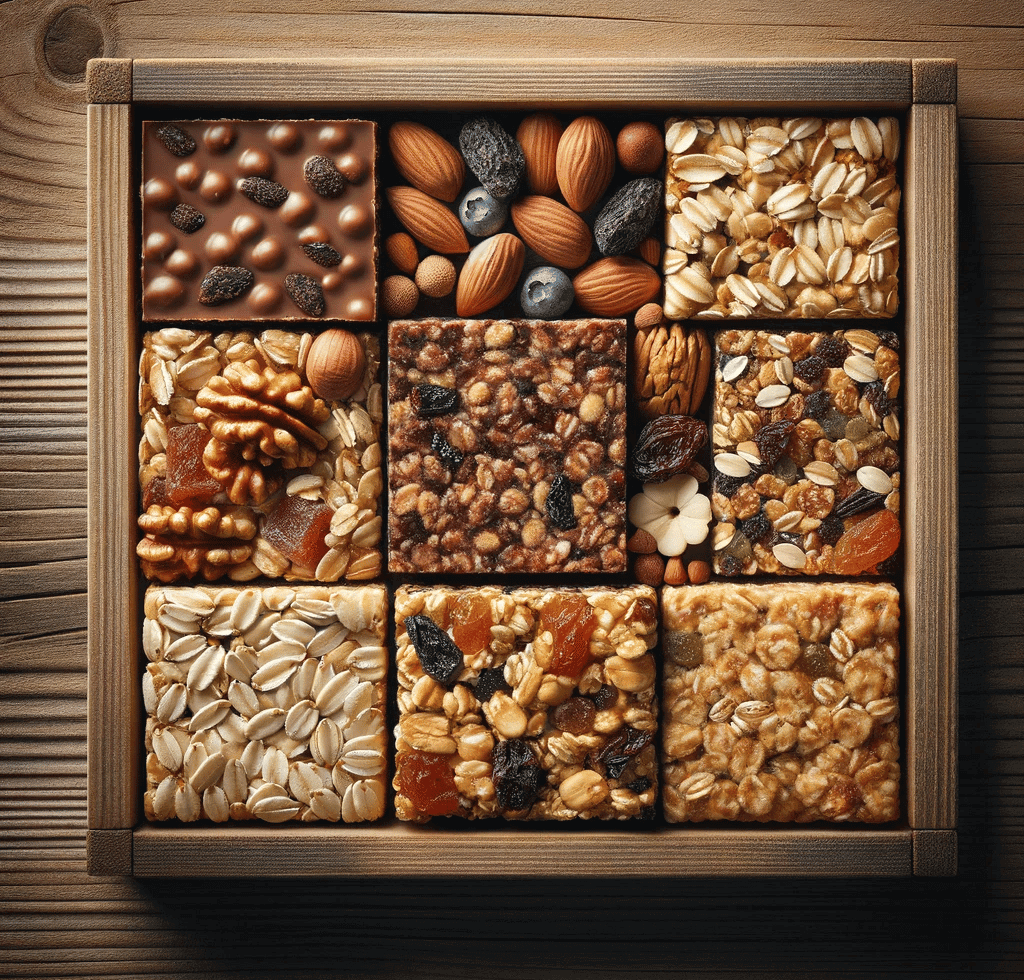
The Misleading Perception of Healthiness
Moving to Granola Bars, the often-chosen snack for a quick, supposedly healthy bite. But here’s a reality check: many granola bars are far from the health icons they’re made out to be. The primary concern with these bars is their high sugar content.
A revealing piece of research in the Journal of Food Science and Technology discovered that certain commercial granola bars pack as much as 20 grams of sugar per serving. That’s nearly equivalent to a candy bar!
The Risks Hidden in a Convenient Snack
This excessive sugar, often sourced from high-fructose corn syrup, can significantly increase the risk of heart disease. Additionally, these bars frequently include preservatives and artificial flavors, which are neither heart-friendly nor beneficial for overall health. Another lurking danger in some granola bars is trans fats, notorious for raising bad cholesterol levels and lowering good cholesterol, thus exacerbating the risk of heart disease.
Making Smart, Heart-Healthy Choices
Next time you’re tempted by a granola bar, it’s crucial to scrutinize the label. Opt for those with minimal added sugars and composed of natural, whole ingredients. Alternatively, homemade granola bars can be a fun, easy, and much healthier option. This way, you have full control over what goes into your snack, ensuring it supports, rather than hinders, your heart health.
2. Bottled Green Smoothies
The Health Halo of Green Smoothies
Now, let’s examine our number 2: Bottled Green Smoothies. They’ve become a popular choice for those seeking a nutritious, on-the-go option. However, the healthful appearance of these smoothies often masks a less-than-healthy reality. While the concept of combining vegetables and fruits in a smoothie is inherently healthy, the commercial versions can be surprisingly deceptive.
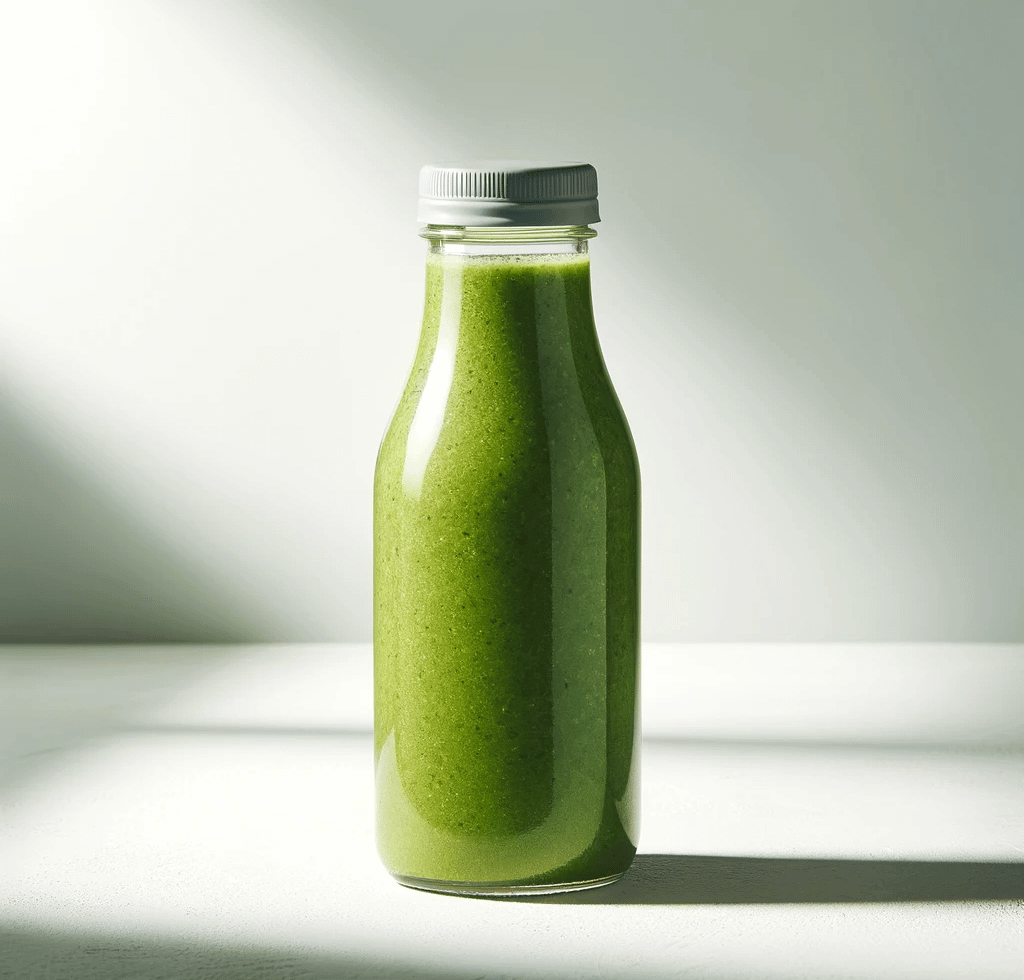
The Startling Sugar Content and Its Impact
A study in the Nutrition Journal evaluated 20 commercially available green smoothies and uncovered that they contained, on average, about 50 grams of sugar per bottle. This amount is twice the daily sugar intake recommended by the American Heart Association. The primary culprits for this high sugar content are added sweeteners and concentrated fruit juices, which can significantly overshadow the benefits of the vegetables included.
The Broader Health Risks of High-Sugar Beverages
These high levels of sugar can lead to serious health implications. Research by the Harvard School of Public Health involving over 30,000 participants linked regular consumption of high-sugar beverages to a 20% higher risk of developing heart disease. Additionally, such excessive sugar intake can cause blood sugar spikes, increasing the risk of type 2 diabetes, a condition that greatly heightens the likelihood of heart disease.
Choosing Wisely for Your Heart
It’s essential to recognize that not all products labeled as ‘green’ or ‘healthy’ are genuinely good for your heart. When it comes to bottled green smoothies, either make your own at home, where you can control the ingredients, or be vigilant in examining the labels of store-bought options. By making informed choices, you can ensure that your diet supports your heart health, avoiding hidden dangers disguised as health foods.
1. Multi-Grain Bread
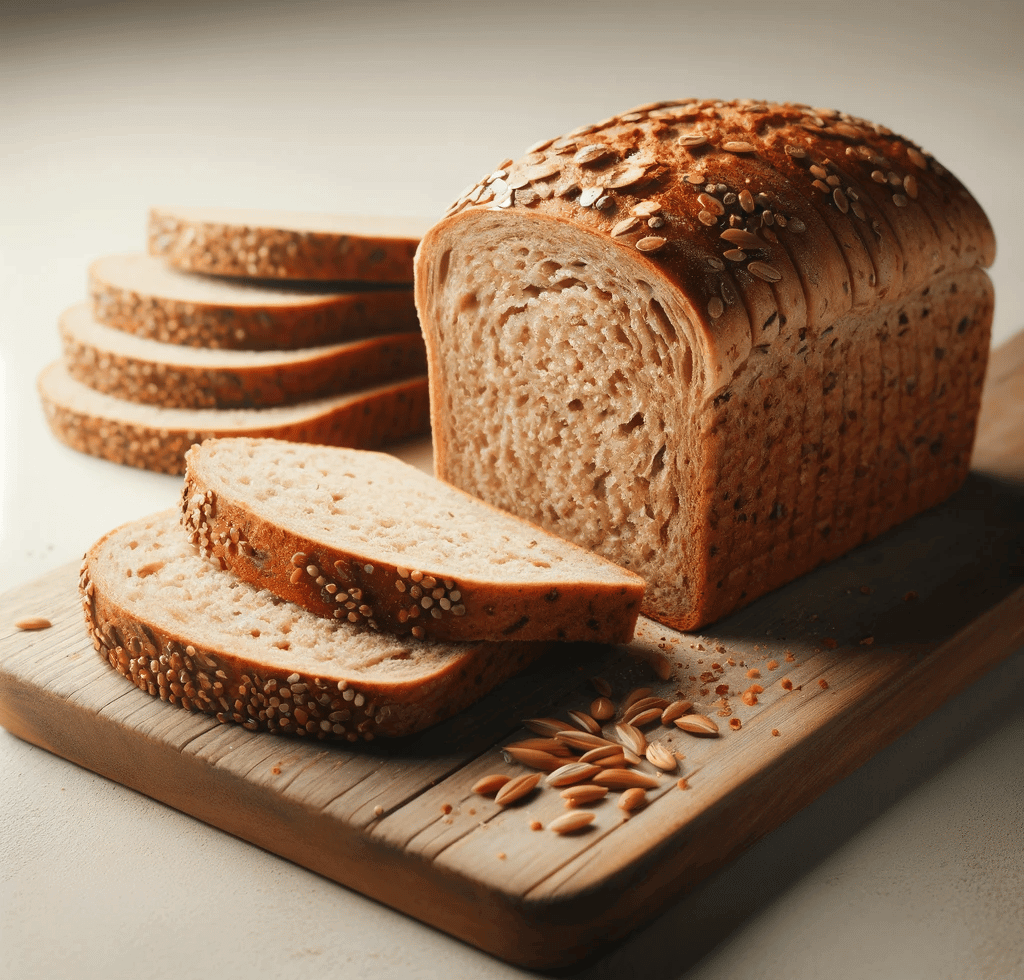
The Misconception of Multi-Grain Healthiness
Topping our list at number 1 is Multi-Grain Bread. It’s often heralded as the paragon of health-conscious eating, but this common perception can be misleading. Here’s a startling statistic that might change the way you view this staple: certain breakfast items, including some multi-grain breads, can hike up the risk of heart disease by an astonishing 42%. This finding is rooted in a comprehensive study examining the impact of various foods on heart health.
The Hidden Culprits in Multi-Grain Bread
The primary issue with many multi-grain breads lies in their composition. Contrary to what their name suggests, these breads often include refined grains rather than whole grains. During the refining process, grains lose vital nutrients and fiber, leading to products that can cause quick spikes in blood sugar and insulin levels, both of which are significant risk factors for heart disease. Additionally, some multi-grain breads are laced with added sugars and preservatives to improve taste and extend shelf life, further exacerbating the risk to heart health.
The Importance of Whole Grains for Heart Health
Let’s contrast this with whole grains, the healthier alternative. Whole grains retain all parts of the grain kernel, including the bran, germ, and endosperm, resulting in a richer nutrient profile. These nutrients, particularly dietary fiber, play a crucial role in moderating blood sugar absorption, maintaining steady energy levels, and supporting overall heart health. Consuming whole grains instead of refined grains can contribute to better heart health and reduced risk of heart disease.
A Breakfast Hack for Enhanced Nutrient Absorption
Interestingly, the way you incorporate whole grains into your diet can also impact nutrient absorption. Combining whole grains with certain foods can enhance the absorption of essential nutrients, making your meal not only delicious but also optimally nutritious. For example, pairing whole grain bread with vitamin C-rich foods like oranges or strawberries can boost iron absorption, an essential mineral for energy and overall health.
Making Informed Bread Choices
So, the next time you’re at the grocery store, scrutinize the bread aisle with a more informed eye. Look beyond the multi-grain label and search for bread that is explicitly labeled as “100% whole grain” or “whole wheat.” These options are more likely to deliver the true heart health benefits that multi-grain breads often claim but fail to provide. By choosing genuinely whole grain products, you are taking a significant step towards a heart-healthier diet.
Practical Tips for a Heart-Healthy Breakfast
Emphasizing Whole, Unprocessed Foods
To ensure your breakfast supports heart health, prioritize whole, unprocessed foods. These natural choices are free from the excessive sugars, unhealthy fats, and preservatives found in many processed breakfast options.
The Balance of Nutrients
Aim for a balanced meal that includes healthy fats, lean proteins, and complex carbohydrates. This combination not only supports heart health but also provides sustained energy and keeps you satiated throughout the morning.
Planning Ahead
Consider preparing your breakfast the night before. This strategy can save valuable time in the morning and help you avoid the temptation of quick but unhealthy options. Overnight oats, chia seed pudding, or pre-made smoothie packs are great choices that you can quickly assemble the night before.
Heart-Smart Choices: Beyond the Breakfast Table
The Power of Informed Decisions
In summary, the key to maintaining heart health, especially in your morning routine, lies in making informed dietary choices. It’s not just about avoiding the seven detrimental foods we’ve discussed; it’s about embracing a lifestyle that values and prioritizes heart health.
Seeking Healthier Alternatives
Opting for healthier alternatives can make a significant difference in your overall well-being and specifically in maintaining a healthy heart. By replacing harmful foods with nutritious options, you’re not just preventing potential heart issues but also enriching your overall diet.
The Long-Term Benefits
Remember, these changes in your breakfast habits can have lasting positive impacts on your heart health. A heart-healthy diet is a cornerstone of a healthy lifestyle, one that can lead to improved overall health and well-being.
For more insights please watch this informative video:
FAQs
- Why are light or diet breakfast sandwiches not recommended for heart health?
They often contain high levels of sodium and preservatives, which can elevate blood pressure and strain the heart. - Can granola bars ever be a healthy choice?
Absolutely. Granola bars can be a healthy option when they are low in added sugars and rich in whole grains, nuts, and seeds. - What should I look for in a heart-healthy smoothie?
A heart-healthy smoothie should include fresh greens, a piece of fruit for natural sweetness, and a base of water or unsweetened almond milk. Avoid added sugars and preservatives for the best heart health benefits. - Are all multi-grain breads bad for heart health?
Not all. It’s essential to choose whole-grain bread that has visible grains and seeds and to avoid bread with refined grains and added sugars. - How can I make my breakfast more heart-healthy on a busy schedule?
Plan ahead by preparing breakfast the night before. Opt for quick, balanced meals like overnight oats, yogurt with fruit and nuts, or pre-made smoothie ingredients that can be quickly blended in the morning.
